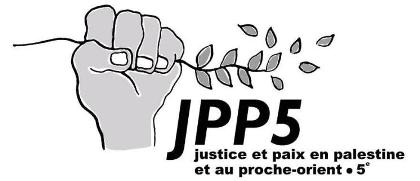 Wassim Qassis
Wassim Qassis
“The breeze of our homeland revives the body
And surely we cannot live without our homeland
The bird cries when it is thrown out of its nest
So how is the homeland that has its own people?”
Verse from a traditional Palestinian folk song, sung in the form of an “Ataaba”.
There are many occasions for traditional songs in Palestinian life, and for each occasion there is a different style. Ataabas, of which one excerpt is shown above, are just one example of popular Palestinian styles.
Traditional Palestinian music has a number of forms: folk, pop and classic, the most important and prevalent musical genre however is folk. Folk songs have no single composer because the melodies and lyrics evolved from day-to-day life: created and transformed by guests at a wedding, farmers working the land or labourers in the factories. It was at these gatherings that people would begin composing songs, organically and collectively, while playing traditional instruments crafted from whatever materials were available to them. Passed down through the generations, these songs are still important today and form a vital link to the past.
In some cities in the north of the West Bank, such as Jenin, Nablus and Tulkarem, traditional music can still be heard at weddings and during Dabke (a traditional dance), played with the oud or arghul - a double-pipe instrument.
Wassim Qassis is a Palestinian musician. At age 5 he began playing percussion, and by 6 or 7 years old he had handmade his first instrument using wooden furniture. Throughout the years, Qassis has continued his training, reaching a professional level in the folk music scene and becoming proficient with a number of traditional instruments of Middle-Eastern origin. His primary instrument is the Buzok, a long-necked lute constructed using a small sound-box and neck with 6 metal strings. The Buzok is widely acknowledged as one of the world’s oldest instruments, dating back at least 4000 years, as evidenced by its presence in ancient Canaanite paintings.
In 2003, Qassis began collaborating with Sabreen, a music organization that promotes Palestinian Culture and Cultural Exchange. After 20 years, he is now a professional musician and teacher at the Edward Said Conservatory in Bethlehem.
“Music is important, it is the main component of culture. As a tool for struggle it says: “We are Palestinian people!” It proves that we are here, we are a nation and we have our own culture,” says Qassis.
Traditional Palestinian music originates from the Bilad al-Sham area, a historic province that encompassed Syria, Lebanon, Jordan and Palestine. Across the modern Levant, the folk sounds are almost indistinguishable, with the only clues to national origin coming from the dialect or accent of the singer.
Palestine’s recent history has strongly impacted its music scene. Folk music in particular - a Palestinian institution that boasts a number of famous poets - has been influenced by the suffering of the Palestinian people and the loss of their homeland. Folk poets have improvised new words to traditional melodies on the spur of the moment, depending on the occasion and political context.
“During the First Intifada, national songs inspired people to resist and be strong in the face of revolution. The streets were full of people singing and dancing national and political songs,” Qassis recalls.
Still today, folk music represents both a vital element of daily life and an important tool against the occupation: “music also means working for yourself and for your country, not only for our troubles or the occupation. As a musician, I can find my own way to struggle against the occupation; I also work with children for Sabreen’s program inside the government school. They are happy when they play music and I am too, because I can enter their hearts. It’s important work.”
“Resistance is not only speaking about politics. Although that is important, cultural knowledge also has an essential role to play. We need to work for the community, for our culture and economy; if you are doing something positive for your people, then you are doing something valuable for your country. We have no opportunities for a normal life because we don’t have space to move, so we must instead focus on the resources we have.”
Qassis continues, “I travelled a lot around Europe and I discovered how big the world is. Large spaces create large minds, whereas limitations decrease the imagination, the development of education, of culture. We have a huge problem with space because of the occupation, and Israel works hard to destroy our culture. The purpose of our work as musicians is to improve the mood of daily life, even if only in a small place.
Qassis argues that this is why the arts are important for people, and to those that could identify art instruction with normalization, as a process of building open and reciprocal relations with Israel, Wassim replies that: “it is not appropriate to establish this relationship. Judging music is a shallow way to see the issue. If there was no occupation on this land, we wouldn’t be able to speak about music in terms of normalization.”
“People often target artists, but we have just found a different tool to fight the occupation. It’s not time to work with Israeli artists, even if they are progressive or they support our struggle and our rights. We can’t stage together specially because our imagine is under political view, even when the artist is working under him own name and not that of his country. There are many progressive artists, but I can’t forget that we are not equal, that we don’t have the same rights.”
http://www.alternativenews.org/english/index.php/features/culture/7363-the-breeze-of-our-homeland
commenter cet article …



